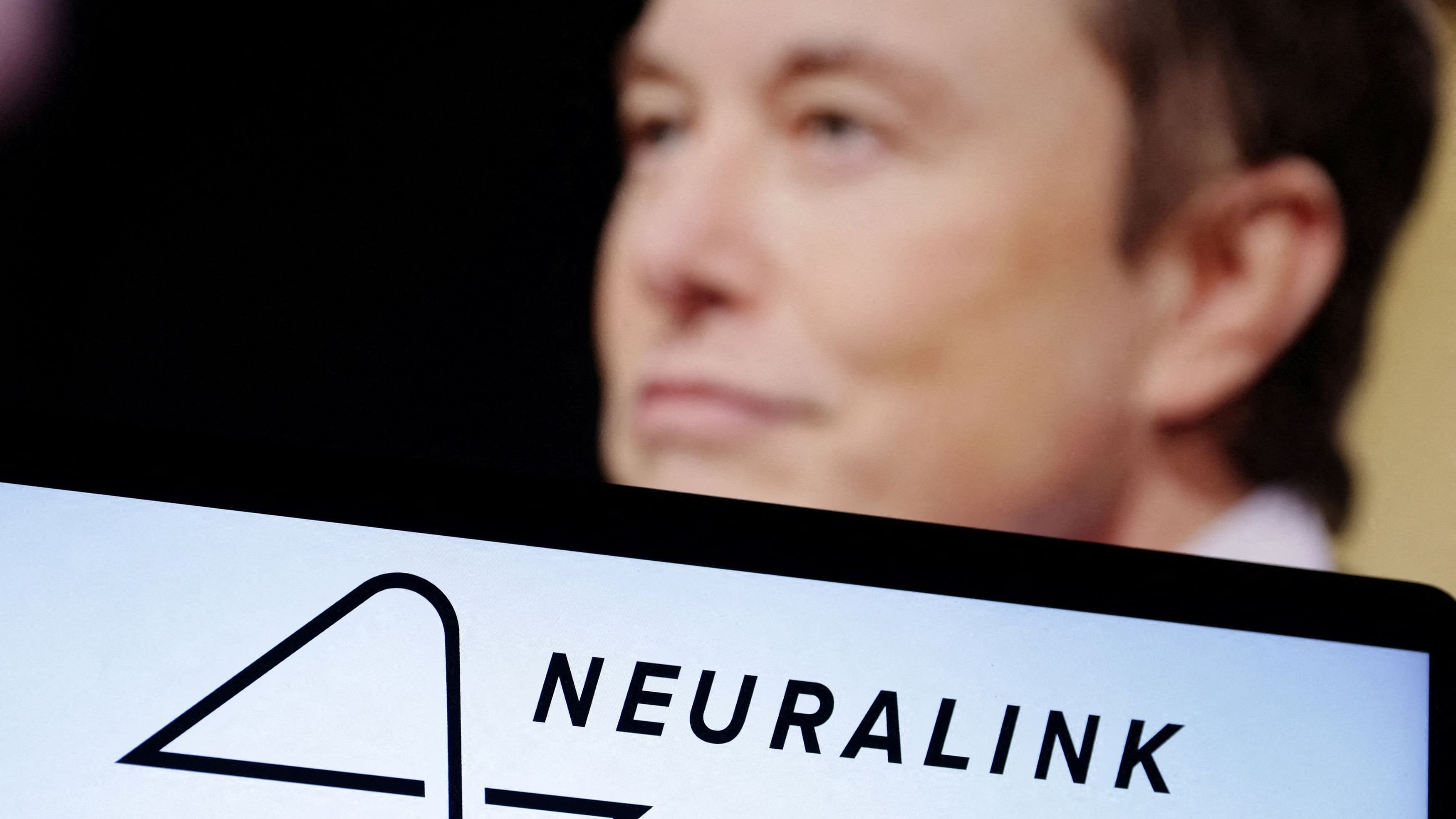
Neuralink logo and Elon Musk.
Credit: Reuters Photo
Elon Musk, who owns Neuralink, a company that makes BCI (brain-computer interface) implants has said that the ubiquitous smartphones will be replaced by Neuralink devices in the future.
A parody account of Elon Musk, who goes by the moniker Not Elon Musk (@iamnot_elon) on X (formerly Twitter) asked platform users-- "Would you install a Neuralink interface on your brain to allow you to control your new X phone by thinking?"
Elon Musk replied--"In the future, there will be no phones, just Neuralinks."
Neuralink, after years of trial on animals, started human trials in January this year. The company implanted a BCI device in a 30-year-old participant, Noland Arbaugh.
Who is Noland Arbaugh?
In 2016, Noland Arbaugh suffered a spinal cord injury in a freak accident at a lake. He slipped and hurt his head near the neck while attempting to dive. Due to the injury, his body is paralysed from the neck down.
Since then, he has been fully dependent on his parents and moves around in a wheelchair. Over the years, he has learned to use the iPad with a stick.
As per the latest progress report (May 2024), Arbaugh with a neuralink device (N1 Implant) has improved his ability to play online chess and Sid Meier's Civilization VI.
For the uninitiated, N1 Implant, an intracortical BCI implant is designed to record neural activity through 1,024 electrodes distributed across 64 flexible leads, or “threads,” each of which is thinner than a human hair and capable of being placed independently in the brain.
Will Neuralink replace phones?
It's too early to say, as Neuralink needs at least a decade if not more to fully assess the BCI implant's capability.
And, even if it gets the nod from regulatory authorities to offer BCI, as a medical aid device to paralysed people, it may need more time to test the modem to carry out long-distance communications.
Earlier this week, Elon Musk said Electronic Voting Machines (EVMs) can be hacked and governments around the world should go back to using ballot papers. This statement contradicts Musk's latest prediction that Neuralinks will replace phones in the future.
With an increase in cyber frauds, why would people agree to implant a gadget inside their head to make phone calls and messages?
Neuralink's implant devices look very promising for disabled people, and to imagine that Neuralink will offer a way to instantly talk to a loved one sitting in a different city just by thinking about them is wishful thinking at this point.
Given the advancements in technology, there is a possibility of achieving that feat; just like slow postcard mail is now replaced by instant messaging through apps.
But, we are a long way from that point. Neuralink has its tasks cut out to make them safe for long-distance communication.
Get the latest news on new launches, gadget reviews, apps, cybersecurity, and more on personal technology only on DH Tech.
